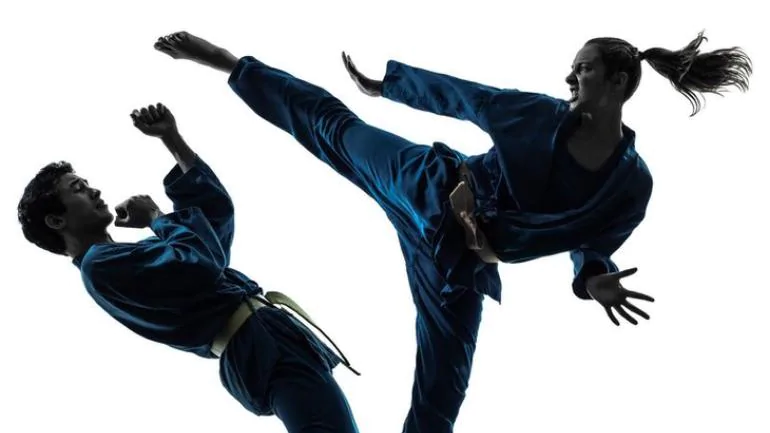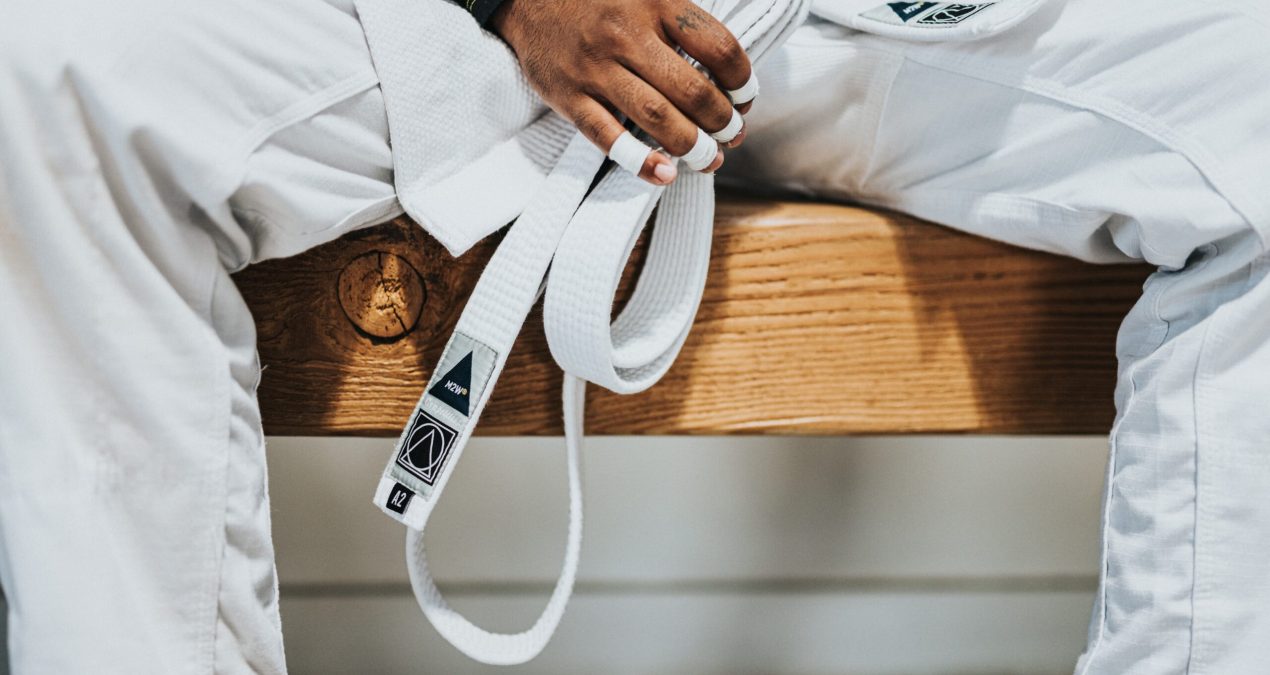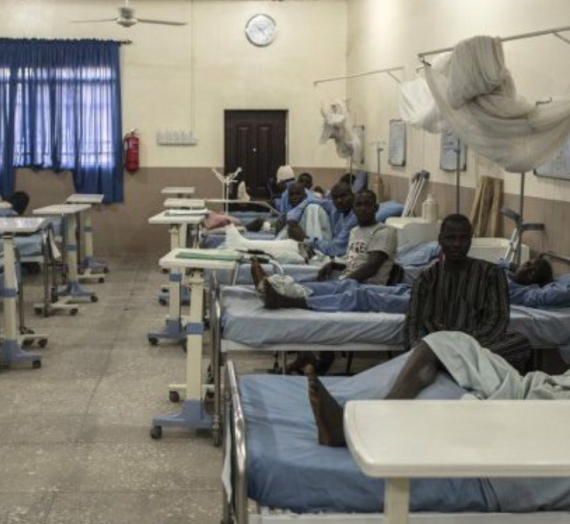In this article, we will be considering the issue of self-defense in Nigeria (especially as contained in the Constitution and other laws). Have you ever wondered – what if I had a pocket knife on me and got attacked and used it in self defence causing the attacker’s death. Would I be prosecuted?
Let’s make use of a hypothetical scenario. On Thursday last week, Odigie, accompanied his Dad to his business location -the abattoir. Odigie carried Fifty-Thousand naira (50,000) in a small bag. The bag was fastened to his waist and he planned to take it to the Bank later in the day. Unknown to him, he was monitored and followed by a hooligan right from home who saw him putting the money into the bag. This hooligan loitered outside the abattoir house waiting for an opportunity to accost Odigie. After a while, Odigie decided to leave the abattoir and get to the bank to deposit the money. When he came out of the abattoir, the hooligan bounced on him and challenged Odigie. He brandished weapons to threaten him into dropping the money with him or face his waterloo. Odigie happens to be of a stubborn nature, so he refused and struggled with the hooligan in a bid to free himself from the attack. All his struggles to escape proved abortive and having noticed, the hooligan became frustrated and was ready to injure and stab Odigie with the weapons in his possession. As a way of defence, Odigie quickly pulled out his pocket knife and stabbed his attacker. The hooligan as a result of the cut ran out of blood, lost consciousness and afterwards gave up the ghost. The question is did Odigie act in self Defense within the bounds of the law?

What is Self Defence?
Firstly, it is of utmost importance to give a succinct definition of what self defence as a principle is. Self defence is the use of force to protect oneself, one’s family or one’s property from real or threatened attack. In other words, it is the act of defending oneself against threatened injury. It is the right to protect oneself or one’s family from immediately threatened harm.
Self defence is a constitutionally recognized exception to the right to life enshrined in the 1999 constitution of the Federal Republic of Nigeria. Therefore, Section 33(2)(a) provides as follows: “A person shall not be regarded as having been deprived of his life in contravention of this section, if he dies as a result of the use, to such extent and in such circumstances as are permitted by law, of such force as is reasonably necessary (a) for the defence of any person from unlawful violence or for the defence of property…”.
Self defence is also provided for under the Criminal code and the Penal code which applies to the Southern and Northern parts of Nigeria respectively. It is also provided for in the Criminal Law of Lagos State. Consequently, a person who is charged with murder and who successfully proves in Court that he acted in self defence as allowed by the Law, will be discharged and acquitted. In other words, He/She will be set free to go. In the case of Uwaekweghinya v State (2005) 9 NWLR (pt. 930)27, the Supreme Court said that ‘where a person kills another in defence of himself, such a killing is excused, and it does not amount to manslaughter under the criminal code or culpable homicide not punishable with death under the penal code’.
In any case in Court where the plea of self defence is raised, it will always be subjected to scrutiny and Court will decide whether the plea applies to the case at hand. As already mentioned, the right to self defence also provided for in section 32(3) of the Criminal Code (applicable in the southern states of Nigeria) which states as follows: ”
A person is not criminally responsible for an act or omission if he does or omits to do the act… when the act is reasonably necessary in order to resist actual and unlawful violence threatened to him or to another person in his presence”.
A similar provision also exists in Section 59 of the penal code applicable in the Northern states of Nigeria and reads as follows:
“Nothing is an offence of which is done in the lawful exercise of the right to private defence”.
The law recognizes that everyone has the propensity to react to dangerous situations in a way to ensure self-preservation. This is clearly why the right to self defence exists. However there is need to ensure equilibrium, this is why the law also lays down certain limitations (which are better called exceptions) to one’s exercise of this right of self defence. This is paramount so as to prevent the society from degenerating into a state of nature.
Section 286 of the Nigerian criminal code states some of these limitations. One significant limitation placed on the exercise of self defence is the requirement that a person who is unlawfully assaulted should use only such force as is reasonably necessary to make an effectual defence against the assault. This means the force used to repel the attack should be proportionate to that used by the attacker.
This can be seen in the first paragraph of section 286 of the Nigerian Criminal code which provides that: “when a person is unlawfully assaulted, and has not provoked the assault, it is lawful for him to use such force to the assailant and is reasonably necessary to make effectual defence against the assault, provided that the force used is not intended and is not such as is likely to cause death or grievous bodily harm’. What harm or force is reasonably necessary is invariably a question of fact. In a case of brutal assault where a person’s life is in danger, such force may extend to the causing of death of the assailant’
The second paragraph of same Section 286 of the criminal code therefore provide as follows- “if the nature of the assault is such as to cause reasonable apprehension of death or grievous harm and the person using force by way of defence believes on reasonable grounds that he cannot otherwise preserve the person defended from death or grievous harm, it is lawful for him to use any such force to the assailant as is necessary for defence even though such force may cause death or grievous harm”. See also the similar provisions of Section 193 and 194 of the Criminal Law of Lagos State
In Akpan v State, the Supreme Court in interpreting section 286 of the Nigerian Criminal code stated as follows:
‘when a person is unlawfully assaulted, and has not provoked the assault, it is lawful for him to use such force on the assailant as is reasonably necessary to make effectual defence against the assault. The force which may be used in such circumstances must not be intended, and should not be such as is likely to cause death or grievous harm. If the nature of the assault is such as to cause reasonable apprehension of death or grievous harm, and the person using force by way of defence believes on reasonable grounds that he cannot otherwise preserve the person defended from death or grievous harm, it is lawful for him to use any such force to the assailant as is necessary for defence even though such force may cause death or grievous harm’.

Proving Self Defence in Court – What must an accused person show?
Furthermore, for the plea of self defence to be successful in Court, the following must be in place and must be proved with credible evidence;
- the accused person must be free from fault in bringing about the encounter or attack,
- there must be present an impending peril to life or of great bodily harm either real or apparent as to create an honest belief of an existing necessity,
- there must be no safe or reasonable mode of escape by retreat,
- there must have been a necessity for taking life.
See Liya v state (1998) 2 NWLR (pt 538) 397 ; Omeregie v state (2008) 18 NWLR (pt 1119) 464 ; Kwaghshir v state (1995) 3 NWLR (pt 386) 651.
In addition, it is imperative to bring to mention that the plea of self defence is only available to an accused person where he proves that at the time of the killing, he was in reasonable apprehension of death or grievous harm and that it was necessary at the time to use the force which resulted in the death of the deceased in order to preserve himself from the danger. The force used by the accused person must be proportionate to the force used or immediately threatened against him and reasonable in the circumstances in which it was used. If however the Assailant’s threat is disproportionate to the force used by the accused person in repelling it then self Defence cannot avail the accused person.
Also, there must be reasonable grounds for the accused person to believe that the only way he could escape death or grievous bodily harm to himself was to kill the assailant. Whether the defence of self defence will succeed depends on the facts of each case. That is why we advise that a lawyer’s advice be gotten in circumstances of this nature.
From the foregoing, it is our considered opinion that in our hypothetical scenario above, Odigie acted in self defence and would not be convicted going by the facts stated in the scenario.
Written by Oluboyo Taiwo LLB (in view)
For further reading
See Nwuzoke v State (1988) 1 NWLR (pt 72) 529; Omeregie v State (2008) 18 NWLR (pt 1119) 464.
Every effort has been made to ensure the accuracy of this publication at the time it was written. However, this publication is not intended to serve as legal advice, solicit for briefs or suggest a guaranteed outcome as individual situations will differ and the law may change from time to time. Readers considering legal action or needing legal support should consult with a lawyer to get proper advice affecting their specific circumstance or set of facts. For further information on the contents of our site and related topics, please send us an email via contact@ls-ng.com



